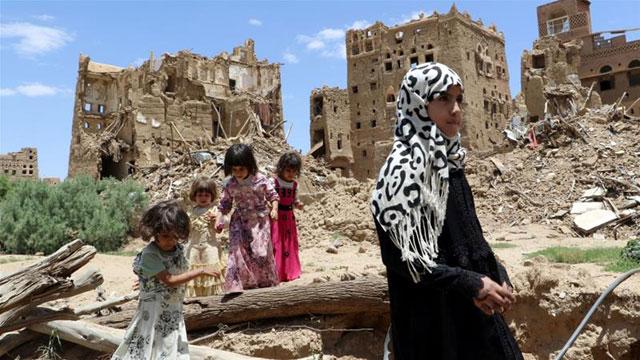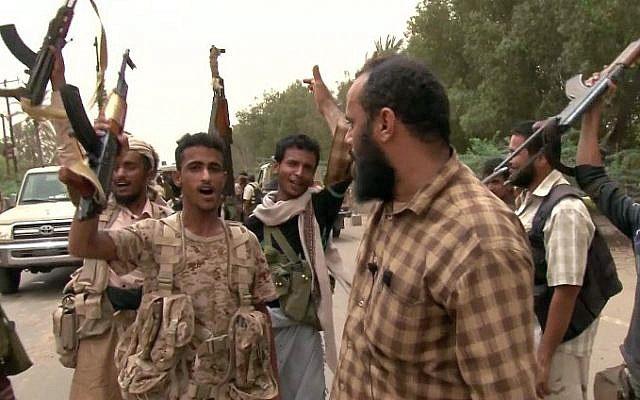You are here
Air raids hit rebel supply lines around Yemen’s Hodeida
By AFP - Nov 26,2018 - Last updated at Nov 26,2018

Houthi followers demonstrate to show rejection of an offer by the Saudi-led coalition to pay compensations for victims of an air strike in Saada, Yemen, on September 5 (Reuters photo)
DUBAI — A Saudi-led military coalition resumed air strikes against rebel supply lines around Hodeida on Sunday two days after a UN envoy visited the lifeline Yemeni port city, pro-government military officials said.
The air strikes targeted convoys of rebel reinforcements at the northern entrance to Hodeida and south of the city, which is held by Iran-aligned Houthi insurgents, the officials told AFP.
The raids came alongside sporadic firefights on the eastern and southern edges of the port city, a resident told AFP.
The renewed violence came after UN envoy Martin Griffiths visited Hodeida on Friday to assess the humanitarian situation ahead of peace talks between Yemen's coalition-backed government and the rebels set to take place in Sweden in December.
Rebel spokesman Mohammed Abdessalam said on Twitter there had been "35 air raids over the last 12 hours on Hodeida, accompanied by artillery bombardments".
No reports of casualties were immediately available for the air raids and the fighting.
Under heavy international pressure, the Yemeni government and the coalition had until Sunday largely suspended a five-month offensive against the port city.
Fighting had intensified in early November as Yemeni forces backed by the coalition attempted to enter Hodeida, but calm returned after Griffiths arrived in Yemen on Wednesday.
After visiting Hodeida on Friday, Griffiths on Saturday met Mohammed Ali Al Houthi, head of the Houthi rebels' Higher Revolutionary Committee, in the insurgent-held capital Sanaa.
The UN envoy is due to hold talks with Yemen's internationally recognised government in the Saudi capital Riyadh on Monday, according to a UN source.
UN agencies say up to 14 million Yemenis are at risk of starvation if fighting closes the city's port, from which nearly all imports and humanitarian aid pass.
According to UN figures, nearly 10,000 people have been killed since the coalition joined the conflict in 2015 to reinforce the government, triggering what the UN calls the world's worst humanitarian crisis.
Rights groups fear the actual toll is far higher.
Related Articles
HODEIDA, Yemen — Saudi-led coalition air strikes reportedly killed eight Yemeni Houthi rebels near the port of Hodeida on Monday, triggering
SANAA — The UN envoy for Yemen landed in rebel-held Sanaa Monday for talks aimed at shoring up a truce between rebels and a government allia
RIMBO, Sweden — Yemen's government and rebels, locked in a devastating war for years, traded mutual accusations on Thursday as they sat down












